Interesting social sciences/The theory of war





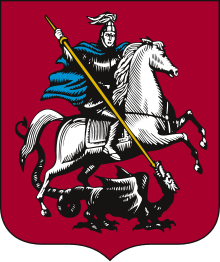
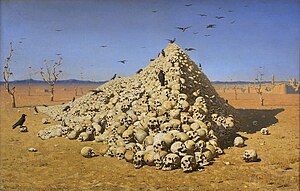

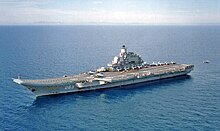

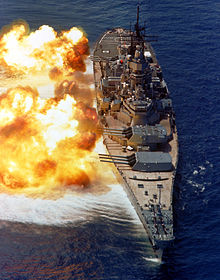






Geopolitics. On the cover - St. George the Victorious kills a snake (anaconda).English subtitles exist in this video.
It is necessary to give answers on the following questions in this paragraph:
- Whether the pacifistic ideas about an opportunity to eradicate war from practice of the international relations are true?
- Whether war has benefit for development of humanity?
German theory of geopolitics
[edit | edit source]The German theory of geopolitics was created under the influence of social Darwinism. The main idea of the German theory of geopolitics consists that life of the states is similar to life of people and animals. The German theory of geopolitics developed a concept of living space which is necessary for development of the country as the favorable environment is necessary for animals.
Friedrich Ratzel's theory about need of increase of the population of Germany with help of expansion of territory of Germany at the expense of colonies
[edit | edit source]Years of his life: 1844 — 1904. This ethnographer and the geographer lived in Germany. He has based "political geography". On his opinion, we see fight for space (territory) throughout all mankind history, fight for existence (as at animals: who has the highest level of development, that has more food). His pupil — Karl Hauskhofer — urged to conquer of vital space for fascist Germany. Adolf Hitler has tried to expand of territory of Germany at the expense of Russia, but as a result of two world wars Germany has lost of 1/3 part of own territory (including the Kaliningrad region)
Biography and views of Karl Haushofer
[edit | edit source]Years of his life: 1869 — 1946. He was a geographer and the sociologist, the founder of the German school of geopolitics. Karl Haushofer saw the reason of defeat of Germany in World War I in geopolitical ignorance of her leadership. Karl Haushofer was appointed by professor after coming to power of his pupil Rudolf Hess and Adolf Hitler in 1933. Though Karl Haushofer participated in negotiations which have led to the conclusion of the union between the Third Reich and Japan, Karl Haushofer preferred to separate from the Nazi leadership in general. Karl Haushofer considered of Adolf Hitler as half - educated person, and Karl Haushofer accused of Joachim von Ribbentrop in distortion of own geopolitical constructions. Albrecht Haushofer, the son of Karl Haushofer, was executed after the plot on 20 July 1944, and aged professor Karl Haushofer was arrested and Karl Haushofer has spent eight months in the Dachau concentration camp. Karl Haushofer has returned to Munich after freeing in 1945, however the endured events cracked his moral forces. Karl Haushofer and his wife have committed of suicide on 13, March 1946.
Hauskhofer's views consisted as follows. The Malthusian concept of "living space" was the base for Karl Haushofer's creativity, and Karl Haushofer saw a purpose of each state in expansion of this space. Need of economic self - sufficiency (autarky), cultural expansion and absorption of the small states were logically deduced from that. Small states only destabilize of international relation. Some of these concepts was used by theorists of Nazism. Though Karl Haushofer supplied by literature of Rudolf Hess and Adolf Hitler during their imprisonment after a failure of Beer Hall Putsch, Karl Haushofer denied that his own views were reflected in book "Mein Kampf" written by Adolf Hitler in prison. Karl Haushofer has developed special option of eurasianism — the doctrine of the Continental union "the Axis Berlin — Moscow — Tokyo" as east counterbalance to the Western Anglo-Saxon world (that is the British Empire and the USA), but this doctrine of Karl Haushofer has been perverted by Adolf Hitler in practice. [1]
Karl Haushofer had written in the well-known article "Continental Block": "…It is impossible to strangle of Eurasia while two of her largest people — Germans and Russians — seek to avoid the internecine warfare in every possible way, similar to the Crimean war or World War I. It is an axiom of the European policy".
Anglo-Saxon theory of geopolitics
[edit | edit source]Sir Alfred Thayer Mahan (years of life: 1840-1914) – this is the American naval theorist and the historian, the rear admiral, the teacher of sea history. Alfred Thayer Mahan has created together with the English admiral Philip Howard Colomb of the theory of "sea power", considering that naval forces possess a crucial role in armed struggle, and conquest of naval supremacy is the main condition of a victory in war. Philip Howard Colomb has written the book "Naval warfare, its ruling principles and practice historically treated." in 1891 [2]. Philip Howard Kolomb predicted that the battleships will play the crucial role in future war during decisive battle, but these forecasts haven't quite come true. The Russian admiral Stepan Makarov was closer to the truth when Stepan Makarov warned against revaluation of a role of battleships and decisive battle. Really, emergence of new classes of the fighting ships (submarines, aircraft carriers, destroyers, torpedo boats) has turned battleships into big and often defenseless target. Aircraft carriers played the crucial role in a victory at the sea in World War II. Thus, forecasts of Philip Howard Colomb haven't come true completely.
Absolutely other destiny expected works and ideas of Alfred Thayer Mahan. He publishes In 1890 the first book "The Influence of Sea Power upon History, 1660–1783"[3], in which Alfred Thayer Mahan has drawn a conclusion that the wellbeing of Great Britain is based on her sea power and superiority of her military fleet. The book made enormous success. The English reviewers called Mahan's works as "the gospel of the British greatness", and German Emperor Wilhelm II claimed that he tries to learn by heart Mahan's works and Wilhelm II has disposed to dispatch of Mahan's works in all ship libraries of Germany. President of USA Theodore Roosevelt even considered himself by Mahan's pupil, repeatedly addressing to Alfred Thayer Mahan for council, especially during creation of "the big fleet".
Main thought of Alfred Thayer Mahan: "The nation wishing to govern at the sea has to attack". The book of Alfred Thayer Mahan was intended first of all for Americans since Alfred Thayer Mahan considered that the USA has "a sea destiny" though the USA wasn't included into the category of the advanced world powers yet in his time. Alfred Thayer Mahan predicted for the USA planetary destiny, formation of the leading sea power which is directly influencing on the fate of the world. Alfred Thayer Mahan considered the main enemies of the USA as "sea civilization" the continental states of Eurasia, first of all, Russia and China, and in the second turn - Germany. Alfred Thayer Mahan suggested for fight against these countries to use the principle of "anaconda" which was applied successfully by the general of northerners George McClellan in American Civil War of 1861-1865. The principle consists in blocking of enemy territories from the sea and on coastlines that leads to exhaustion of the opponent gradually because of the stopping of sea trade and the stopping of supply of weapon from abroad by sea. Having transferred this principle to planetary level, Alfred Thayer Mahan suggested to suffocate continental mass in rings of "anaconda", squeezing of continental mass at the expense of brought out of her control of the coastal zones and blocking whenever possible of exits to sea spaces of continental mass. This strategy was implemented in World War I when the Entente supported of the white movement in Russia (as the answer to the conclusion by Bolsheviks of the peace with Germany). This strategy was applied against Germany, Italy and Japan in World War II also. But this strategy is visible especially accurately during an era of Cold War when opposition of the USA and the USSR has reached global, planetary scales.
In my opinion, the world history demonstrates that countermethod appears over time against each method including countermethods will appear over time against tactics of sea power too. Germans applied naval tactic Wolfpack consisting of submarines during World War II long time successfully. The German aircrafts and torpedo boats caused a big loss in convoys of USA and Britain, the German aircrafts and torpedo boats were based in Norway. USA and Britain have managed to win of the German submarines only with help of total control of the surface of the Atlantic Ocean. The Achilles' heel of diesel submarines is a need to emerge periodically on the surface of the sea to turn on the diesel and to recharge accumulators, the boat can be found and destroyed at this moment easily. Modern nuclear submarines have no this shortcoming and modern nuclear submarines can lie at the bottom of the sea on alert very long. Rockets played the large role in modern war, this invention has turned the large ships and big cities of the opponent into a convenient target. The naval supremacy doesn't suffice already for achievement of world supremacy today, it is necessary to have also domination in the atmosphere and in space for this purpose today. Technical progress is infinite in military equipment. Sea countries are forced to perform overland operations for a final victory over continental countries and to occupy of the territory of continental countries after the victory at the sea of sea countries over continental countries. Big problems begin here at sea countries. Sea powers sustain big losses in manpower during guerrilla war. Americans have lost the war in Vietnam and in Afghanistan for this reason. Big losses in manpower cause protests in America. American aircraft carriers and other warships have become a large and defenseless target for Russian hypersonic missiles "Zircon " today. Americans are somewhat behind Russians in the development of hypersonic weapons today. And the backward should make concessions in negotiations on the division of spheres of influence.
Conclusion: despite all these remarks, Russia has to pay huge attention to development of navy. Almost nobody managed to win the war against Russia. Russia walked on corpses of great empires all own history. The West won't be able to win in the war against Russia in the future too. Dissolution of the Soviet Union is temporary success of the West in "cold" war. Dissolution of the Soviet Union happened because of backwardness of the Soviet Union in sphere of economy and policy. The president of Russia Boris Yeltsin drew conclusions from this defeat and Boris Yeltsin undertook necessary reforms – Boris Yeltsin has introduced western inventions (system of representative democracy, the market competition and a private property) into Russia. The economic and political system of Russia isn't worse than the economic and political system of the western countries today. Russia did in this way always - Russia studied at the opponents in the course of war always, and then Russia won against the opponents as a result of war. Russia headed by the president Vladimir Putin will recover of own sphere of influence in the near future and the West won't be able to prevent it.
My theory of war
[edit | edit source]Utopia of pacifism. The role of the war in history of mankind
[edit | edit source]A war was the only effective method of the resolve of the international conflicts because of the territory and the national contradictions until creation of the UN. Experience of World War II has shown that war between the civilized advanced countries with use of thermonuclear weapon and long - range rockets threaten of mankind with death. Therefore prevention of World War III and punishment of aggressors became a main purpose of founders of the UN. However experience of a communistic experiment has shown that any great invention of mankind including war and border can never "die off ", contrary to Karl Marx's forecasts. Every type of the conflict including war, have own benefit and perform own function therefore this type of conflict can't be cancelled arbitrarily without damage for society.
The main benefit and the main function of war between the countries consists in identification of the most advanced country which becomes by winner often. Lost countries and more backward countries are forced after war either to die, or to study at winner first of all in military area, and then in other areas. If war is impossible between the advanced countries having nuclear weapon, then war of the advanced countries against backward countries, not having of nuclear weapon, is quite acceptable and even inevitable today. Pacifism as the theory about full eradication of all wars from practice of the international relations, is a utopia. War, international trade and cultural exchange are the only ways of educating of the backward people that to improve their cultural development before the level of the advanced nations. Indigenous people of Africa, America, Australia, Siberia would still live in a primitive society without war.
The first form of contact with an alien civilization will be manifested in the form of war always. Whether it makes sense to send in this case of radio signals to alien "brothers on mind"? War of the advanced countries against the backward countries and terrorists is inevitable at least for the reason that terrorists are capable to attack of the advanced countries sometimes. Leaders of the advanced countries are disoriented by the pacifistic ideas and this leaders doesn't want to see real threats. Today the backward regimes have applied against the advanced countries rather effective tactics - global terror and guerrilla war. For example, the terrorist organization Al-Qaeda led by Osama bin Laden has organized of the attack to the USA on September 11, 2001.
The USA has made a mistake when the USA have crushed Saddam Hussein's regime in Iraq and Muammar Gaddafi's regime in Libya because chaos, civil war and the power of terrorists in the form of the Islamic State of Iraq and the Levant have replaced Gaddafi's and Hussein's regime. Totalitarian regime is lesser of two evils in comparison with the power of terrorists (ochlocracy).
Islamic terrorists have organized of civil war against Russia in Chechnya. Drug traffic and trade of oil became a source of financing of terrorists. Non-proliferation regime of nuclear weapon has to interfere with a possibility of creation of nuclear weapon in the backward countries. Unpredictability of actions of the totalitarian regimes (for example communist regime in Northern Korea) armed by nuclear weapon can put mankind before face of death. The mankind invents counterweapon against any weapon sooner or later. Like it or don't like it, but borders have to remain, immigration has to have of certain restrictions, and wars for possession of the territory will take place in the global world in the future.
International conflicts
[edit | edit source]



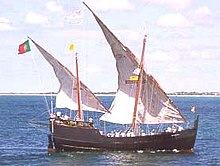
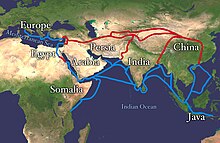


| Major discoveries | |||
|---|---|---|---|
| Major discovery/ Destination | Main explorer | Year | Funding by |
| Congo River | Diogo Cão | 1482 | John II of Portugal |
| Cape of Good Hope Indian Ocean | Dias | 1488 | John II of Portugal |
| West Indies | Cristopher Columbus | 1492 | Ferdinand and Isabella |
| India | Vasco da Gama | 1498 | Manuel I of Portugal |
| Brazil | Pedro Álvares Cabral | 1500 | Manuel I of Portugal |
| Maluku Islands Australasia (Western Pacific Ocean) | Afonso de Albuquerque, António de Abreu and Francisco Serrão | 1512 | Manuel I of Portugal |
| Pacific Ocean | Vasco Balboa | 1513 | Ferdinand II of Aragon |
| Strait of Magellan | Ferdinand Magellan | 1520 | Charles I of Spain |
| Circumnavigation | Ferdinand Magellan and Juan Sebastián Elcano | 1522 | Charles I of Spain |
| Australia | Willem Janszoon | 1606 | United East India Company |
| New Zealand | Abel Tasman | 1642 | United East India Company |
| Antarctica | James Cook | 1773 | George III |
| Hawaii | James Cook | 1778 | George III |
International conflicts arise, mainly, in the form of armed conflicts. The purpose of armed conflict is fight for possession of the territory, economic resources (mineral deposits, energy resources, precious metals), for control over maritime trade routes, for possession of colonies. Besides, the conqueror can impose of a tribute or reparations on the defeated opponent. The purpose of war is defeat of army of the opponent and occupation of his territory. Means of war is weapon. That side wins in the war most often which possesses more modern weapon. It is possible to cause more notable loss to the opponent in manpower and the technician with help of this weapon. Progress of weapon consists that his destructive power grows. War arose from hunting on wild animals. People have replaced object of destruction from wild animals on people in the course of transition from hunting to war. Soldiers have ceased to destroy of defeated opponents in the war during period of slaveholding, and soldiers began to turn of prisoners of war into slaves. Main types of weapon are bow and arrow, melee weapon, chariot, cavalry, catapult, battering ram, warships, arbalest, firearm, guns, tanks, military planes, rockets, nuclear, chemical and bacteriological weapon.
Economic stimuluses are applied in foreign policy except military strikes, for example, providing climate of most favoured nation in trade, soft loans, economic sanctions or embargo on trade are applied. Besides, ideological fight and ideological control are applied in foreign policy. The example of ideological control is imposing by the conqueror to the defeated people of own religion and culture. The Catholic countries organized crusades against Muslims and pagans with the purpose to impose of own Catholic religion. Arabs forced of defeated people to accept Islam. Russia has received of Orthodoxy from Byzantium voluntarily. Greeks bore of the high culture (theater, philosophy and poetry) to the people of the Roman Empire. the American culture, production of Hollywood, takes dominant positions in world of mass culture today though works of of Hollywood have very poor quality often.
The new method of fight is as follows. Some backward Muslim nations are not able to be at war therefore backward Muslim nations try to get into the territory of other countries with help of peaceful migration, to create of national districts, to increase of the number of Muslim population quickly at the expense of the strong family relations in Muslim family and high birth rate, and then to displace indigenous people and to fight for separation of these national districts from the territory of these countries. Albanians managed to finish this plan in Kosovo. Albanians have displaced of Serbians from Kosovo and Albanians have achieved of separation of this national districts from Serbia. The similar plan exists at the Crimean Tatars in the Crimea, Crimean Tatars have purpose to displace of Russians and Ukrainians from the Crimea and to attach this peninsula Crimea to Turkey. Here to what cancellation leads of such great social invention as national border between the countries under the slogan of broad development of globalization. The same danger threatens of countries of Western Europe because of mass immigration of Muslims to Europe. It is the real "The Decline of the West" about which Oswald Spengler warned in book "The decline of the West"[4]. National borders prevents from unlimited immigration. The indigenous people has to assimilate of small number of migrants in normal conditions. Migrants-barbarians can assimilate of indigenous people of the country in a condition of unlimited immigration. This fact can be as a catastrophe for this country. This demographic problem is the most important problem for the Western countries and Russia.
Some countries seek to dominate in world international trade. They seek to capture of trade ways, to capture priority in construction of sea trade ships and warships, to orient the production of handicraft and industrial goods for export.
Examples of the countries which have gained of trade power thanks to wars:
- Ancient Phoenicia. She controlled trade on the Mediterranean Sea. List of the main Phoenician goods: glass, bronze weapon, tyrian purple. Phoenicia was crushed by Ancient Greece and Phoenicia is forced out from trade ways by Ancient Greece and then Ancient Carthage (main colony of Phoenicia) has been destroyed completely by Ancient Rome. Phoenicians lost to Greeks in Battle of Salamis, because the Greeks used the fast warship ‐ trireme armed by bronze bow (rams or embolon) that to punch the side of the enemy ship below the waterline. Alexander the Great captured the capital of Phoenicia ‐ Tyre, and then Ancient Rome seized and destroy main Phoenicia’s colony ‐ Carthage. Tyre was located on the island near the coast of the continent, therefore Alexander the Great has ordered to fill a dam between this city and the coast in the course of a siege of Tyre and Alexander the Great has ordered to apply navy at storm of the city.
- Ancient Greece, mainly, Athens. Greeks sold new goods – iron weapon, ceramics, silver jewelry, olive oil, grape wine and so on.
- Ancient Rome. Romans began to establish catapults on warships.
- Byzantium. Byzantines began to arm own warships with "the Greek fire" (flamethrower) by means of which Byzantines began to set fire the opponent's ships.
- Venice. Venice has managed to seize trade ways on the Mediterranean Sea. Venetians have directed the blow of crusaders to Constantinople which then has been captured by Turks, and Byzantium has died finally.
- Portugal and Spain. The first ocean ships (a caravel and carrack) were invented in Portugal and Spain. Portuguese controlled a way around Africa to India and China, and Spaniards controlled a way to America. Portuguese have brought to Europe the Indian and Chinese goods – spices, silk, cotton, porcelain. Arabs and turks carried earlier these goods from China and India with help of the overland "silk" way, arabs and turks sold to Europeans these goods at very high monopoly prices. And Spaniards carried the precious metals (gold and silver) from America. As a result of the price of the Chinese, Indian goods and precious metals have fallen sharply in Europe. Naturally Spain didn't buy gold resources from indigenous peoples. The states of aboriginals of America were won, robbed and destroyed by means of firearms and iron cold weapon.
- Britain. Britain managed to crush Spanish Armada and Britain managed to force out Spain and Portugal from trade ways worldwide. Britain has occupied extensive colonies in North America and has made India by own colony, then Britain has forced of China to open the borders for foreign trade by means of "opium" wars. China was divided by the European countries into spheres of influence as pumpkin. Britain managed to beat also other trade competitors – France and Holland. Machines were invented in Britain for expansion of production of export goods and the steam engine were invented in Britain instead of a sail for increase of speed of the ships. Britain was considered as "the queen of the seas" and "the international carrier" in 19 century. Britain produced the most part of goods for international trade. Germany has tried to throw a challenge to Britain in 20 century and Germany has tried to force out of Britain from the leading positions in world trade. But the USA have moved forward on the leading positions in world trade as a result of defeat of Germany in two world wars, nobody expected it.
- USA. This country takes the leading positions in world trade today, but the European Union, Japan, South Korea and China restrict of the USA in world trade already. Russia is going to restore of own sphere of influence on the international scene, leaning on own army and the fleet. Russia has the big territory and many resources therefore Russia has high potential for economic development. Peter the Great has won an exit for Russia to the Baltic Sea, Catherine the Great has won for Russia an exit to the Black Sea. Russia under Joseph Stalin has conquered half of the island of Sakhalin and the Kuril Islands at Japan, that has opened an exit in the Pacific Ocean for Russia. These exits to seas are necessary to Russia for expansions own world trade and own sphere of influence. The history shows that any country, including the USA can't count on world supremacy for a long time.
General theory of war
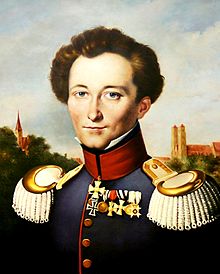

The authoritative general theory of war is still not created. This problem is not solved in sociology up to the end today yet. "The general theory of war" is the universal theory suitable for the description and synthesis of information on military collisions of different eras and different types of military forces. Сarl von Clausewitz as the founder of this theory, wrote in main work "On war" [5] that "war is the policy pursued by other means", that "every era has to have own theory of war". Сarl von Clausewitz considered war from the point of view of a ratio of "expenses" and "incomes": each state has political purposes, and war can serve to their achievement in the best way. Political "incomes" has to be on one thicket of scales whereas acceptable "expenses" has to be on other thicket of scales. When military expenses exceed of political incomes, that war has to stop.
Ludwig von Misses about the economic theory of war
[edit | edit source]Ludwig von Misses is considered on the West as unshakable supporter of liberalism and fighter against socialism and bureaucracy. His main work is "Human action. A treatise on economics" [6].
A brief history of wars. Total war
[edit | edit source]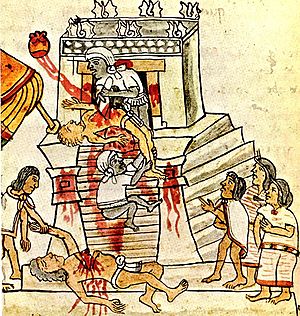
The cooperation between the warring parties didn't exist at all in primitive society before the outbreak of hostilities. These wars were unlimited or total wars. These wars aimed at an absolute victory. The defeated people were either exterminated or expelled from their dwelling places or enslaved. The idea that a treaty could settle the conflict and make it possible for both parties to live in peaceful neighborly conditions was not present in the minds of the fighters. The principle of empire building is to expand the sphere of supremacy as far as possible. The great Asiatic conquerors and the Roman Imperators were stopped only when they could not march farther. Then they postponed aggression for later days. They did not abandon from their ambitious plans and they did not consider independent foreign states as anything else than targets for later onslaughts.
This philosophy of boundless conquest also animated the rulers of medieval Europe. They too aimed first of all at the greatest possible expansion of the size of their kingdoms. However, the institutions of feudalism did not give them enough funds to wage wars. Vassals were not obliged to fight for their lord more than a limited time. The selfishness of the vassals who insisted on their rights checked the king's aggressiveness. Thus the peaceful coexistence of a number of sovereign states originated. In the sixteenth century a Frenchman, Bodin, developed the theory of national sovereignty. In the seventeenth century a Dutchman, Grotius, added to it a theory of international relations in war and peace. With the disintegration of feudalism, sovereigns could no longer rely upon summoned vassals. The organization, equipment, and support of such troops were rather costly and a heavy burden on the ruler's revenues.
Ambitions of the princes were unbounded, but financial considerations forced them to moderate their designs. They no longer planned to conquer a whole country. All they aimed at was the conquest of a few cities or of a province. To attain more would also have been unwise politically. For the European powers were anxious not to let any one of them become too powerful and a menace to their own safety. A too impetuous conqueror must always fear a coalition of all those whom his bigness has frightened, for example, Russia has lost the Livonian war and Crimean war to the coalitions of the European countries.
The combined effect of military, financial, and political circumstances produced the limited warfare which prevailed in Europe in the three hundred years preceding the French Revolution. Wars were fought by comparatively small armies of professional soldiers. War was not in affair of the peoples; it concerned the rulers only. The citizens detested war which brought mischief to them and burdened them with taxes and contributions. But they considered themselves victims of events in which they did not participate actively. Even the belligerent armies respected the "neutrality" of the civilians. As they saw it, they were fighting the supreme warlord of the hostile forces, but not the non-combatant subjects of the enemy. In the wars fought on the European continent the property of civilians was considered inviolable. In 1856 the Congress of Paris made an attempt to extend this principle to naval warfare. More and more, eminent minds began to discuss the possibility of abolishing war altogether.
Looking at conditions as they had developed under the system of limited warfare, philosophers found wars useless. Men are killed or maimed, wealth is destroyed, countries are devastated for the sole benefit of Kings and ruling oligarchies. The peoples themselves do not derive any gain from victory. The individual citizens are not enriched if their rulers expand the size of their realm by annexing a province. The only cause of armed conflict is the greed of autocrats. The substitution of representative government for royal despotism will abolish war altogether. Democracies are peaceful. It is no concern of theirs whether their nation's sovereignty stretches over a larger or smaller territory. They will treat territorial problems without passion. They wili settle them peacefully. What is needed to make peace durable is to dethrone the despots. This, of course, cannot be achieved peacefully. It is necessary to crush the mercenaries of the kings. But this revolutionary war of the peoples against the tyrants will be the last war, the war to abolish war forever.
This idea was already dimly present in the minds of the French revolutionary leaders when, after having repelled the invading armies of Prussia and Austria, they embarked upon a campaign of aggression. Of course, under the leadership of Napoleon they themseIves very soon adopted the most ruthless methods of boundless expansion and annexation until a coalition of all European powers frustrated their ambitions. But the idea of durable peace was soon resurrected. It was one of the main points in the body of nineteenth century liberalism as consistently elaborated in the much abused principles of the Manchester school.
The British liberals considered that free trade, both in domestic affairs and in international relations, was the necessary prerequisite of the preservation of peace. In such a world without trade and migration barriers no incentives for war and conquest are left. Fully convinced of the irrefutable persuasiveness of the liberal ideas, they dropped the notion of the last war to abolish all wars. All peoples will of their own accord recognize the blessings of free trade and peace and will curb their domestic despots without any aid from abroad. This liberal idea was a utopia too.
Most of historians couldn't understand the factors which replaced the "limited" war of the ancien regime bv the "unlimited" war of our age. As they see it, the change came with the shift from the dinastic to the national form of state and was a consequence of the French Revolution. They look only upon attending phenomena and confuse causes and effects. They speak of the composition of the armies, of strategical and tactical principles, of weapons and transportation facilities, and of many other matters of military art and administrative technicalities.' Nowever, all these things do not explain why modern nations prefer agsression to peace. There is perfect agreement with regard to the fact that total war is an offshoot of aggressive nationalism. While under free trade and freedom of migration no individual is concerned about the territorial size of his country, under the protective measures of economic nationaIism nearly every citizen has a substantial interest in these territorial issues. The enlargement of the territory subject to the sovereignty of his own government means material improvement for him or at least relief from restrictions which a foreign government has imposed upon his well-being.
If Napoleon I had reached his goal, the French Empire would have stretched far beyond the limits of 1815. All these things would not have made the citizens of France more prosperous. But if Hitler had realized his plans, the Germans expected to enjoy a higher standard of living. They were confident that the annihilation of the French, the Poles, and the Czechs would make every member of their own race richer. The struggle for more Lebensraurn was their own war. Modern total war has nothing in common with the limited war of the old dynasties. It is a war against trade and migration barriers, a war of th; comparatively overpopulated countries against the comparatively underpopulated. It is a war to abolish those institutions which prevent the emergence of a tendency toward an equalization of wage rates all over the world. It is a war of the farmers tilling poor soil against those governments which bar them from access to much more fertile soil lying fallow. It is, in short, a war of wage earners and farmers who describe themselves as underprivileged "have-nots" against the wage earners and farmers of other nations whom they consider privileged "haves." [7].
The war and market economy
[edit | edit source]The market economy, say the socialists, is the best a system that may be tolerated in peacetime. But when war comes, such indulgence is impermissible. It would jeopardize the vital interests of the nation for the sole benefit of the selfish concerns of capitalists and entrepreneurs. War, and in any case modern total war, peremptorily requires government control of business.
An examination of the problems which the United States had to face in the second World War will clearly show how this dogma is fallacious. What America needed in order to win the war was a radical conversion of all its production activities. All not absolutely indispensable civilian consumption was to be eliminated. The plants and farms were henceforth to turn out only a minimum of goods for non-military use. For the rest, they were to devote themselves completely to the task of supplying the armed forces. However not government decrees and the paper work of hosts of people on the government's payroll, but the efforts of private enterprise produced those goods which enablcd the American armed forces to win the war and to provide all the material equipment its allies including Russia needed for their cooperation.
It is impossible to make planes and battleships automatically with help of the decrees forbidding by use of steel for construction of houses. The sudden transition from peace to war revolutionizes the structure of the market, makes radical readjustments indispensable and thus becomes for many a source of high profits. The planners and interventionists regard such profits as a scandal. As they see it, the first duty of government in time of war is to prevent the emergence of new millionaires. It is, they say, unfair to let some people become richer while other people are killed or maimed. It may be admitted that it is not "fair" that war enhances the profits of those entrepreneurs who contribute best to the equipment of the fighting forces. But it would be foolish to deny that the profit system produces the best weapons. It was not socialist Russia that aided capitalist America with lend-lease; the Russians were lamentably defeated before American-made bombs fell on Germany and before they got the arms manufactured by American big business.
But on the other hand in my opinion the Russian army bled profusely and battled to death against invincible German army from 1941 to 1944 while for U.S. army and British army waited and sat out beyond the seas.
Of course, in the long run war and the preservation of the market economy are incompatible. Capitalism is essentially a scheme for peaceful nations. But this does not mean that a nation which is forced to repel foreign aggressors must substitute government control for private enterprise. If it were to do this, it would deprive itself of the most efficient means of defense. There is no record of a socialist nation which defeated a capitalist nation. In spite of their much glorified war socialism, the Germans were defeated in both World Wars.
In my opinion, the Soviet Russia has lost Cold War to the capitalist United States. The leadership of the Russian Federation has drawn conclusions from these mistakes, and weapons are produced here by private business today in Russia . Ludwig von Misses have hurried with a conclusion that Russia has lost "Cold" war. Russia has risen from knees today and Russia was forced to continue "Cold" war with the USA. The new round of "Cold" war is caused by the fact that the USA has taken away all Russian sphere of influence at Russia. Russia wants to restore the sphere of own influence. Russia wants to force to respect the civil rights of the Russian population in Ukraine and in the countries of the Baltics.
The market economy, subject to the sovereignty of the individual consumers, turns out products which make the individual's Iife more agreeable. It caters to the individual's demand for more comfort. It is this that made capitalism despicable in the eyes of the apostles of violence. They worshiped the "hero," the destroyer and killer, and despised the bourgeois and his "peddler mentality" (Sombart). Now mankind is reaping the fruits which ripened from the seeds sown by these men. [8].
The international division of labour, which reduces the number of military conflicts
[edit | edit source]
The international division of labor was developed under the assumption that there would no longer be wars. The method of military science consists in examining the experience of wars fought in the past and in abstracting general ruIes from it. The European military experts slighted the study of the American Civil War. In their eyes this war was not instructive. It was fought by armies of irregulars led by nonprofessional commanders. Civilians like Abraham Lincoln interfered with the conduct of the operations. Little, they believed, could be learned from this experience. But it was in the Civil War that, for the first time, problems of the interregional division of labor played the decisive role. The South was predominantly agricultural; its processing industries were negligible. The Confederates depended on the supply of manufactures from Europe. As the naval forces of the Union were strong enough to blockade their coast, they soon began to lack needed equipment. The Germans in both World Wars had to face the same situation. They depended on the supply of foodstuffs and raw materials from overseas. But they could not run the British blockade. In both wars the outcome was decided by the battles of the Atlantic. The Germans lost because they failed ii their efforts to cut off the British Isles from access to the world market and could not themselves safe guard their own maritime supply lines. The strategicaI problem was determined by the conditions of the international division of labor. The German warmongers were intent upon adopting policies which, as they hoped, could make it possible for Germany to wage a war in spite of the handicap of the foreign trade situation. Their panacea was Ersatz, the substitute. A substitute is a good which is either less suitabIe or more expensive or both less suitable and more expensive than the proper good which it is designed to replace. Whenever technology succeeds in manufacturing or discovering something which is either more suitable or cheaper than the thing previously used, this new thing represents a technologicai innovation; it is improvement and not Ersatz. I ne essentiaI feature of Ersatz, as this term is employed in the economic-military doctrine, is inferior quality or higher costs or both together. An example of an ersatz – German valenki from straw in 1941 in a battle at Moscow, saccharin instead of sugar, margarine instead of butter.
The Webrwirtscbaftslebre, the German doctrine of the economics of war, contends that neither cost of production nor quality are important in matters of warfare. Profit-seeking business is c'oncerned with costs of production and with the quality of the products. But the heroic spirit of a superior race does not care about such specters of the acquisitive mind. What counts alone is war preparedness. A warlike nation must aim at autarky in order to be independent of foreign trade. It must foster the production of substitutes irrespective of marmonist considerations. It cannot do without full government controI of production because the selfishness of the individual citizens would thwart the plans of the leader. Even in peacetime the commander-in-chief must be entrusted with economic dictatorship. Both theorems of the Ersatz doctrine are falIacious. If soldiers are sent into battle badly nourished and equipped with weapons made of inferior material, the chances for victory are impaired. Their action will be less successful, and they will suffer heavier casualties. The awareness of their technical inferiority will weigh on their minds. Ersatz jeopardizes both the material strength and the morale of an army. To less incorrect is the theorem that the higher costs of production of the substitutes do not count. Higher costs of production mean that more labor and more material factors of production must be expended in order to achieve the same effect which the adversary, producing the proper product, attains with a lower expenditure. It is tantamount to squandering scarce factors of production, material and manpower, Such waste under conditions of peace results in lowering the standard of living, and under conditions of war in cutting down the supply of goods needed for the conduct of operations. [9].
The causes of war in the Arab world
[edit | edit source]The Arab nationalism and Islamic fundamentalism are.the strongest political ideas in the Arab world The Arab nationalism has aim at creation of the Arab state founded on the racial principle for Arabs only, Islamic fundamentalism has aim the theocratic Islamic State. Both of these principles have much in common. Both of them are formulated in terms of family: Arab brotherhood and Islamic brotherhood. Both of these principles consider brotherhood as more lawful basis for the state, than available principles. It is necessary to consider one more important aspect inherent in the Arab world is the idea of the Arab greatness. Both named political movements are considered as ways to achievement of greatness through association. Modern state borders are perceived as contradicting the idea of the Arab greatness for two reasons: internal and external. The internal reason is a division between the rich and the poor in the Arab world. Poor Arabs look at the rich as on accidentally grown rich. If all Arabs are brothers, then the oil wealth has to belong to all Arabs.
It is necessary to force the rich Arab countries to make extensive investments into development of the poor Arab countries for an achievement of peace in the region. The national borders designated by the colonial authorities remain illegal for many Arabs. A positive side of invasion of Saddam Hussein into Kuwait was for millions of poor Arabs the fact that Saddam Hussein has thereby thrown down a challenge to state borders. Until a huge chasm exists between the rich people and the poor people in the Arab world, this region will remain unstable. The external reason is the fact that borders are reason of the conflicts between the rich people and the poor people in the Arab world. The borders weaken by Arabs because of armed conflicts between Arabs, for example, war between Iran and Iraq by 1980-1988 because of east bank of river Shatt al-Arab. Most of Arabs supported by Saddam Hussein because he is represented as risen man against the USA even if he was executed soon by a court decision, exactly it is considered his merit. In my opinion, the high birth rate and unemployment are main reasons of wars in the Arab world.
About harmful and benefit of war:
[edit | edit source]Harm of war
Modern war is merciless, it does not spare pregnant women or infants; it is indiscriminate killing and destroying. It does not rcspect the rights of neutrals. Millions are killed, enslaved, or expelled from the dwelling places in which their ancestors lived for centuries. Nobody can foretell what will happen in the next chapter of this endless struggle. [10].
The benefit of war.
Despite all lamentations of pacifists about disasters and the numerous victims of war, war have some benefit. There is no other way to punish of aggressor, to overthrow of tyrant or totalitarian regime, except war. There is no other way except war to attach others territory, to achieve separation of colony from the metropole (mother country), to force the backward country to introduce great social inventions.
Some researchers consider that the market economy and the international division of labor means often peaceful cooperation. In my opinion, it is not absolutely so, for example, international trade causes wars for control over trade ways. The main export goods of some countries are drugs today (Afghanistan) that causes armed conflicts with other countries. The first contact between primitive tribes often led to a war. War is a great social invention, war is one of the main forms of the social conflict which can't be cancelled in principle. Though war can be limited a little by means of the global armed control when the UN Security Council resolves an issue who should be considered as aggressor, and about need to punish of aggressor by means of the international armed forces. Russia is included into this UN Security Council and Russia has to take part in the solution of similar questions. The USA and NATO can't make similar decisions without participation of Russia.
War between great nuclear powers can lead to huge disasters therefore there can't be winners in this war in the conditions of a present ratio of forces and the level of development of military equipment. But there is no guarantee that this parity of forces will remain in the future. New invention in the field of military equipment, for example, the invention of a space weapon is able to allow one of the countries to break this parity and to achieve world supremacy though any conqueror didn't manage to achieve of world supremacy in the past.
Citations and references
[edit | edit source]- ↑ Karl Haushofer. Wikipedia. https://en.wikipedia.org/wiki/Karl_Haushofer
- ↑ Naval warfare, its ruling principles and practice historically treated by rear-admiral P. H. Colomb. https://archive.org/details/navalwarfareitsr00colo/page/n5
- ↑ A. T. Mahan The Influence of Sea Power upon History, 1660–1783" https://archive.org/details/seanpowerinf00maha/page/n6
- ↑ Oswald Spengler. The decline of the West. https://archive.org/details/Decline-Of-The-West-Oswald-Spengler/page/n1
- ↑ Сarl von Clausewitz. On war. https://www.clausewitz.com/readings/OnWar1873/TOC.htm
- ↑ Ludwig von Misses. "Human action. A treatise on economics. Chapter 34. The economics of war. https://mises.org/sites/default/files/Human%20Action_3.pdf
- ↑ Ludwig von Misses. "Human action. A treatise on economics. Chapter 34. The economics of war. 1. Total war. Pages 817-820. https://mises.org/sites/default/files/Human%20Action_3.pdf
- ↑ Ludwig von Misses. "Human action. A treatise on economics. Chapter 34. The economics of war. 2. War and the Market Economy. Pages 821-823. https://mises.org/sites/default/files/Human%20Action_3.pdf
- ↑ Ludwig von Misses. "Human action. A treatise on economics. Chapter 34. The economics of war. 3. War and Autarky. Pages 824-826. https://mises.org/sites/default/files/Human%20Action_3.pdf
- ↑ Ludwig von Misses. "Human action. A treatise on economics. Chapter 34. The economics of war. 4. The Futility of War. Pages 828. https://mises.org/sites/default/files/Human%20Action_3.pdf